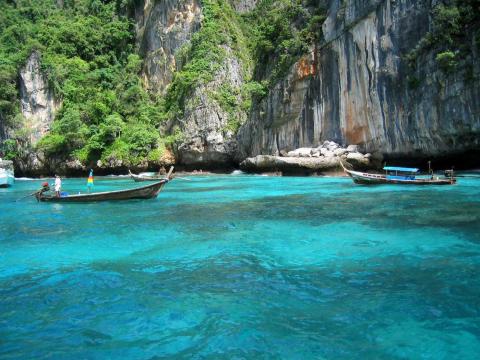USA created the world's largest marine reserve
Obama's action also roughly doubles the amount of marine protected areas worldwide. "Expanding the Monument will more fully protect the deep coral reefs, seamounts and marine ecosystems unique to this part of the world, which are also among the most vulnerable areas to the impacts of climate change and ocean acidification," according to a White House fact sheet.
From overfishing to climate change, the world's oceans are under assault from a wide array of manmade threats that are altering the chemistry of ocean waters; they are becoming more acidic, which harms corals and shellfish. The acidity of the ocean is changing 50 times faster than any known change in millions of years, according to data cited by the White House.
The expanded monument will include more than 130 sea mounts, which are underwater mountains that are often volcanic, and home to previously undiscovered species. The monument area will also encompass more migration routes of species, including sea turtles, tuna, sharks, marine mammals and manta rays. In addition, foraging seabirds can be found in the protected areas, including red-footed boobies and sooty terns.
While commercial fishing will be off limits in the expanded monument, "recreational and traditional fishing that is consistent with the conservation goals" will be permitted. Ocean advocates, who are racing against the clock in an effort to protect hotspots of biodiversity worldwide before human activities further degrade the health of ocean ecosystems, praised Obama's actions. "This marks and important day for ocean conservation in this country," said Matt Rand of the Pew Charitable Trust's Global Ocean Legacy Project. "The expansion of these marine reserves will greatly enhance the footprint of protection already there and with it, support a vast array of sea life that inhabits on of the most pristine ocean systems remaining on earth."
Environmental advocacy group Avaaz also applauded the monument designation, and called on other countries to follow suit in waters under their jurisdiction. “President Obama’s announcement delivers a ray of hope in the battle to save our seas which are gasping for help. To stop the industrial trawlers, other governments and international bodies must urgently follow suit and create more marine sanctuaries so that our fishing stocks and marine life recovers," said Luis Morago, Avaaz campaign director.
Presidents have used their executive authority to designate national monuments since 1906, when former U.S. President Theodore Roosevelt established the Devils Tower National Monument in Wyoming.
Andrew Freedman

